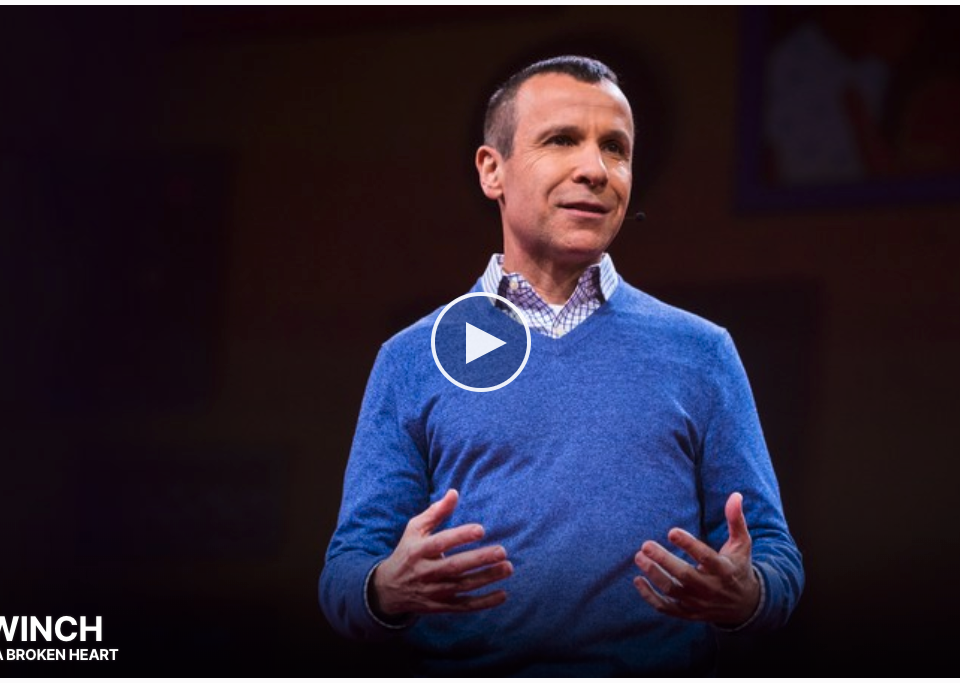
Job interview | Entrevista de emprego
4 de julho de 2018
Food idioms in English
9 de julho de 2018I’m going to begin with a scary question: Are we headed toward a future without jobs? The remarkable progress that we’re seeing in technologies like self-driving cars has led to an explosion of interest in this question, but because it’s something that’s been asked so many times in the past, maybe what we should really be asking is whether this time is really different. The fear that automation might displace workers and potentially lead to lots of unemployment goes back at a minimum 200 years to the Luddite revolts in England. And since then, this concern has come up again and again.
I’m going to guess that most of you have probably never heard of the Triple Revolution report, but this was a very prominent report. It was put together by a brilliant group of people — it actually included two Nobel laureates — and this report was presented to the President of the United States, and it argued that the US was on the brink of economic and social upheaval because industrial automation was going to put millions of people out of work. Now, that report was delivered to President Lyndon Johnson in March of 1964. So that’s now over 50 years, and, of course, that hasn’t really happened.And that’s been the story again and again.
This alarm has been raised repeatedly, but it’s always been a false alarm. And because it’s been a false alarm, it’s led to a very conventional way of thinking about this. And that says essentially that yes, technology may devastate entire industries. It may wipe out whole occupations and types of work. But at the same time, of course, progress is going to lead to entirely new things. So there will be new industries that will arise in the future, and those industries, of course, will have to hire people.There’ll be new kinds of work that will appear, and those might be things that today we can’t really even imagine. And that has been the story so far, and it’s been a positive story.
It turns out that the new jobs that have been created have generally been a lot better than the old ones. They have, for example, been more engaging. They’ve been in safer, more comfortable work environments, and, of course, they’ve paid more. So it has been a positive story. That’s the way things have played out so far. But there is one particular class of worker for whom the story has been quite different. For these workers, technology has completely decimated their work, and it really hasn’t created any new opportunities at all. And these workers, of course, are horses.
So I can ask a very provocative question: Is it possible that at some point in the future, a significant fraction of the human workforce is going to be made redundant in the way that horses were? Now, you might have a very visceral, reflexive reaction to that. You might say, “That’s absurd. How can you possibly compare human beings to horses?” Horses, of course, are very limited, and when cars and trucks and tractors came along, horses really had nowhere else to turn. People, on the other hand, are intelligent; we can learn, we can adapt. And in theory, that ought to mean that we can always find something new to do, and that we can always remain relevant to the future economy.
But here’s the really critical thing to understand. The machines that will threaten workers in the futureare really nothing like those cars and trucks and tractors that displaced horses. The future is going to be full of thinking, learning, adapting machines. And what that really means is that technology is finally beginning to encroach on that fundamental human capability — the thing that makes us so different from horses, and the very thing that, so far, has allowed us to stay ahead of the march of progress and remain relevant, and, in fact, indispensable to the economy. So what is it that is really so different about today’s information technology relative to what we’ve seen in the past? I would point to three fundamental things.
The first thing is that we have seen this ongoing process of exponential acceleration. I know you all know about Moore’s law, but in fact, it’s more broad-based than that; it extends in many cases, for example, to software, it extends to communications, bandwidth and so forth. But the really key thing to understand is that this acceleration has now been going on for a really long time. In fact, it’s been going on for decades. If you measure from the late 1950s, when the first integrated circuits were fabricated, we’ve seen something on the order of 30 doublings in computational power since then.That’s just an extraordinary number of times to double any quantity, and what it really means is that we’re now at a point where we’re going to see just an extraordinary amount of absolute progress,and, of course, things are going to continue to also accelerate from this point. So as we look forward to the coming years and decades, I think that means that we’re going to see things that we’re really not prepared for. We’re going to see things that astonish us.
The second key thing is that the machines are, in a limited sense, beginning to think. And by this, I don’t mean human-level AI, or science fiction artificial intelligence; I simply mean that machines and algorithms are making decisions. They’re solving problems, and most importantly, they’re learning. In fact, if there’s one technology that is truly central to this and has really become the driving force behind this, it’s machine learning, which is just becoming this incredibly powerful, disruptive, scalable technology.
One of the best examples I’ve seen of that recently was what Google’s DeepMind division was able to do with its AlphaGo system. Now, this is the system that was able to beat the best player in the worldat the ancient game of Go. Now, at least to me, there are two things that really stand out about the game of Go. One is that as you’re playing the game, the number of configurations that the board can be in is essentially infinite. There are actually more possibilities than there are atoms in the universe.So what that means is, you’re never going to be able to build a computer to win at the game of Gothe way chess was approached, for example, which is basically to throw brute-force computational power at it. So clearly, a much more sophisticated, thinking-like approach is needed. The second thing that really stands out is that, if you talk to one of the championship Go players, this person cannot necessarily even really articulate what exactly it is they’re thinking about as they play the game. It’s often something that’s very intuitive, it’s almost just like a feeling about which move they should make.
So given those two qualities, I would say that playing Go at a world champion level really ought to be something that’s safe from automation, and the fact that it isn’t should really raise a cautionary flag for us. And the reason is that we tend to draw a very distinct line, and on one side of that line are all the jobs and tasks that we perceive as being on some level fundamentally routine and repetitive and predictable. And we know that these jobs might be in different industries, they might be in different occupations and at different skill levels, but because they are innately predictable, we know they’re probably at some point going to be susceptible to machine learning, and therefore, to automation. And make no mistake — that’s a lot of jobs. That’s probably something on the order of roughly halfthe jobs in the economy.
But then on the other side of that line, we have all the jobs that require some capability that we perceive as being uniquely human, and these are the jobs that we think are safe. Now, based on what I know about the game of Go, I would’ve guessed that it really ought to be on the safe side of that line. But the fact that it isn’t, and that Google solved this problem, suggests that that line is going to be very dynamic. It’s going to shift, and it’s going to shift in a way that consumes more and more jobs and tasks that we currently perceive as being safe from automation.
The other key thing to understand is that this is by no means just about low-wage jobs or blue-collar jobs, or jobs and tasks done by people that have relatively low levels of education. There’s lots of evidence to show that these technologies are rapidly climbing the skills ladder. So we already see an impact on professional jobs — tasks done by people like accountants, financial analysts, journalists,lawyers, radiologists and so forth. So a lot of the assumptions that we make about the kind of occupations and tasks and jobs that are going to be threatened by automation in the future are very likely to be challenged going forward.
So as we put these trends together, I think what it shows is that we could very well end up in a futurewith significant unemployment. Or at a minimum, we could face lots of underemployment or stagnant wages, maybe even declining wages. And, of course, soaring levels of inequality. All of that, of course, is going to put a terrific amount of stress on the fabric of society. But beyond that, there’s also a fundamental economic problem, and that arises because jobs are currently the primary mechanism that distributes income, and therefore purchasing power, to all the consumers that buy the products and services we’re producing.
In order to have a vibrant market economy, you’ve got to have lots and lots of consumers that are really capable of buying the products and services that are being produced. If you don’t have that, then you run the risk of economic stagnation, or maybe even a declining economic spiral, as there simply aren’t enough customers out there to buy the products and services being produced.
It’s really important to realize that all of us as individuals rely on access to that market economy in order to be successful. You can visualize that by thinking in terms of one really exceptional person.Imagine for a moment you take, say, Steve Jobs, and you drop him on an island all by himself. On that island, he’s going to be running around, gathering coconuts just like anyone else. He’s really not going to be anything special, and the reason, of course, is that there is no market for him to scale his incredible talents across. So access to this market is really critical to us as individuals, and also to the entire system in terms of it being sustainable.
So the question then becomes: What exactly could we do about this? And I think you can view this through a very utopian framework. You can imagine a future where we all have to work less, we have more time for leisure, more time to spend with our families, more time to do things that we find genuinely rewarding and so forth. And I think that’s a terrific vision. That’s something that we should absolutely strive to move toward. But at the same time, I think we have to be realistic, and we have to realize that we’re very likely to face a significant income distribution problem. A lot of people are likely to be left behind. And I think that in order to solve that problem, we’re ultimately going to have to find a way to decouple incomes from traditional work. And the best, more straightforward way I know to do that is some kind of a guaranteed income or universal basic income.
Now, basic income is becoming a very important idea. It’s getting a lot of traction and attention, there are a lot of important pilot projects and experiments going on throughout the world. My own view is that a basic income is not a panacea; it’s not necessarily a plug-and-play solution, but rather, it’s a place to start. It’s an idea that we can build on and refine. For example, one thing that I have written quite a lot about is the possibility of incorporating explicit incentives into a basic income. To illustrate that, imagine that you are a struggling high school student. Imagine that you are at risk of dropping out of school. And yet, suppose you know that at some point in the future, no matter what, you’re going to get the same basic income as everyone else. Now, to my mind, that creates a very perverse incentive for you to simply give up and drop out of school.
So I would say, let’s not structure things that way. Instead, let’s pay people who graduate from high school somewhat more than those who simply drop out. And we can take that idea of building incentives into a basic income, and maybe extend it to other areas. For example, we might create an incentive to work in the community to help others, or perhaps to do positive things for the environment, and so forth. So by incorporating incentives into a basic income, we might actually improve it, and also, perhaps, take at least a couple of steps towards solving another problem that I think we’re quite possibly going to face in the future, and that is, how do we all find meaning and fulfillment, and how do we occupy our time in a world where perhaps there’s less demand for traditional work?
So by extending and refining a basic income, I think we can make it look better, and we can also, perhaps, make it more politically and socially acceptable and feasible — and, of course, by doing that,we increase the odds that it will actually come to be.
I think one of the most fundamental, almost instinctive objections that many of us have to the idea of a basic income, or really to any significant expansion of the safety net, is this fear that we’re going to end up with too many people riding in the economic cart, and not enough people pulling that cart. And yet, really, the whole point I’m making here, of course, is that in the future, machines are increasingly going to be capable of pulling that cart for us. That should give us more options for the way we structure our society and our economy, And I think eventually, it’s going to go beyond simply being an option, and it’s going to become an imperative. The reason, of course, is that all of this is going to put such a degree of stress on our society, and also because jobs are that mechanism that gets purchasing power to consumers so they can then drive the economy. If, in fact, that mechanism begins to erode in the future, then we’re going to need to replace it with something else or we’re going to face the risk that our whole system simply may not be sustainable.
But the bottom line here is that I really think that solving these problems, and especially finding a way to build a future economy that works for everyone, at every level of our society, is going to be one of the most important challenges that we all face in the coming years and decades.
Thank you very much.





